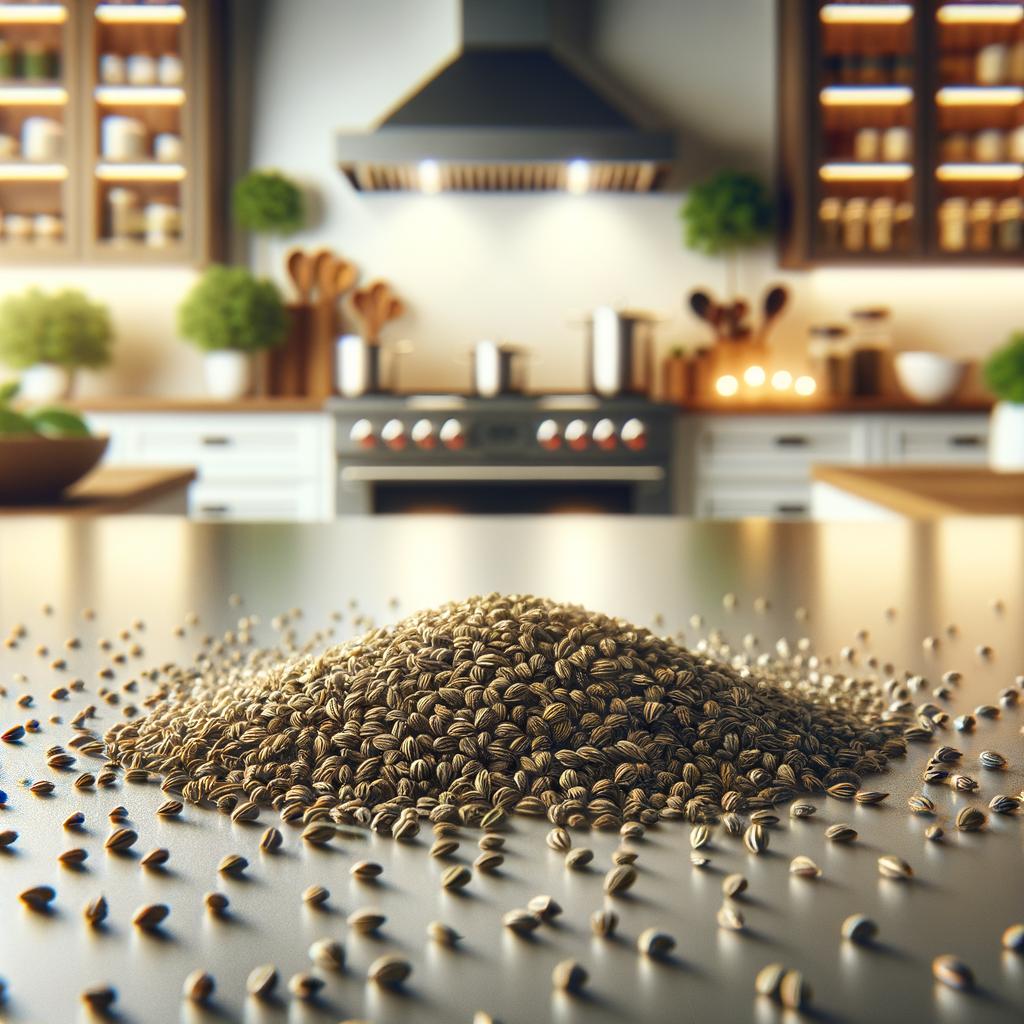Basil Seeds

Description
Basil seeds, often referred to as Sabja seeds, are the tiny edible black seeds from the sweet basil plant, Ocimum basilicum. These little marvels are no bigger than a pinhead, boasting a jet-black color and a slightly elliptical shape. Upon soaking in water, they transform into a gelatinous orb with a translucent white outer layer, reminiscent of miniature dragon eggs from a fairy tale. Their flavor profile is quite mild, almost neutral, but they have a distinctive, pleasing crunch when bitten into, providing an interesting contrast to their gel-like exterior. What sets basil seeds apart from similar ingredients like chia seeds is their ability to swell and form a gel-like substance within minutes of being soaked in water, a characteristic that lends itself well to culinary applications.
Primary Uses
Basil seeds are a versatile ingredient, often used in drinks, desserts, and salads for their unique texture and aesthetic appeal. In Indian cuisine, they are a key component in Falooda, a popular cold dessert beverage. Similarly, in Southeast Asian countries, they are frequently added to beverages and sweet dishes for a refreshing crunch. Beyond their culinary uses, basil seeds have been utilized in traditional Ayurvedic and Chinese medicine for their purported health benefits, and they hold cultural significance in many Asian countries as a symbol of prosperity and fertility.
History
The history of basil seeds is as rich and intriguing as the dishes they grace. Originating in India and other tropical regions of Asia, they have been used for thousands of years, not only as a culinary ingredient but also for their medicinal properties. Over time, their use spread to the Middle East and the Mediterranean region. In many cultures, they are associated with love and fertility, and there are stories of women carrying basil seeds as an amulet to attract potential suitors. Today, their popularity has surged globally due to their health benefits and unique culinary properties.
Nutritional Information
Despite their tiny size, basil seeds are a nutritional powerhouse. They are a rich source of dietary fiber, high-quality protein, and beneficial fats, particularly alpha-linolenic acid (ALA), a type of omega-3 fatty acid. They also contain a variety of minerals, including calcium, magnesium, and iron. When compared to chia seeds, another similar ingredient, basil seeds offer a higher fiber content and a similar protein profile. Their high fiber content can aid digestion and help control blood sugar levels. However, due to their high fiber content, it's recommended to consume them in moderation to avoid digestive discomfort. Their unique nutritional profile and myriad benefits make them a worthy addition to any diet.

